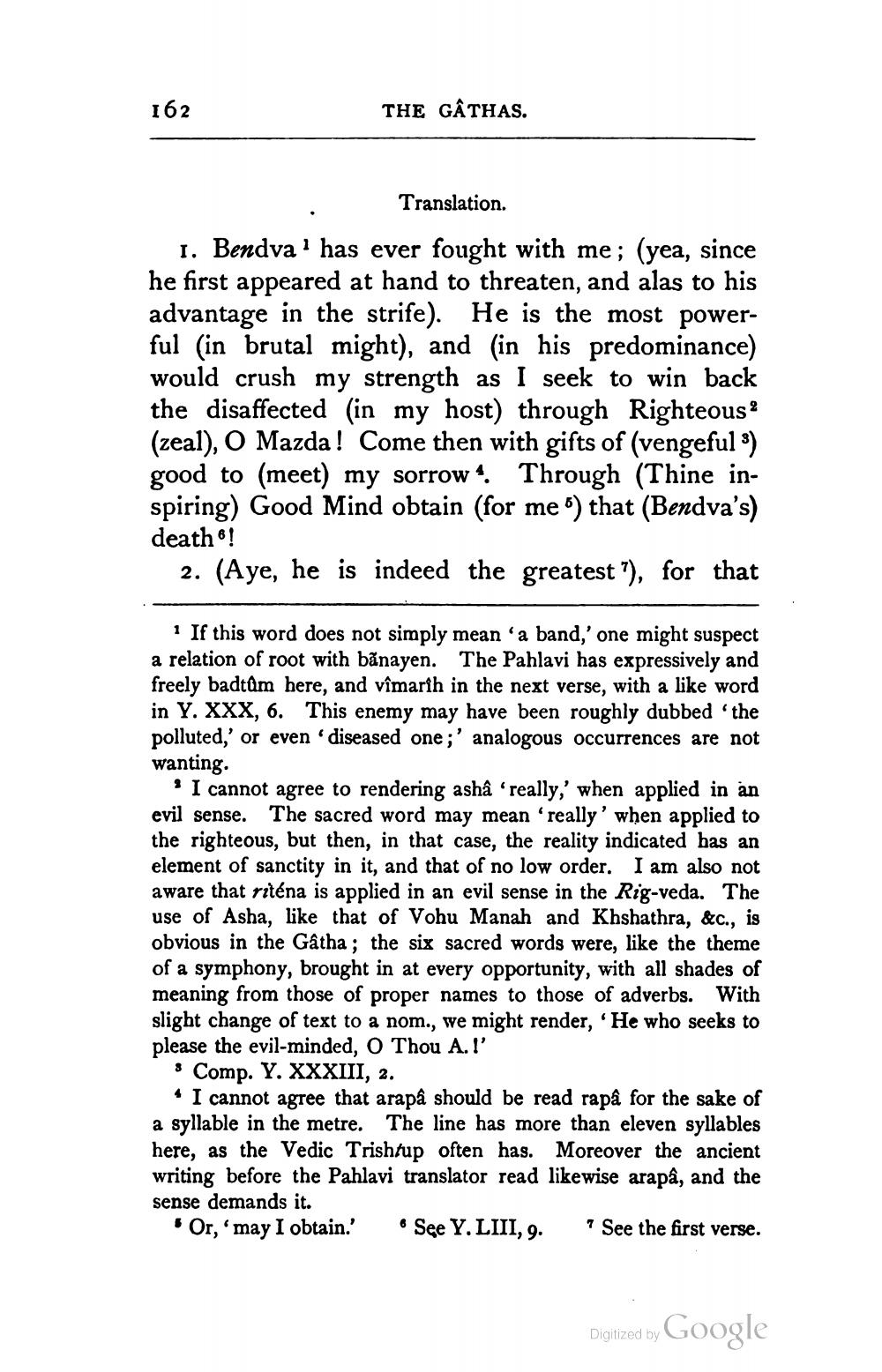________________
162
THE GÂTHAS.
Translation.
1. Bendva' has ever fought with me; (yea, since he first appeared at hand to threaten, and alas to his advantage in the strife). He is the most powerful (in brutal might), and in his predominance) would crush my strength as I seek to win back the disaffected (in my host) through Righteous ? (zeal), O Mazda! Come then with gifts of (vengeful 3) good to (meet) my sorrow“. Through (Thine inspiring) Good Mind obtain (for me 5) that (Bendva's) death!
2. (Aye, he is indeed the greatest ), for that
* If this word does not simply mean'a band,' one might suspect a relation of root with bảnayen. The Pahlavi has expressively and freely badtam here, and vîmarih in the next verse, with a like word in Y. XXX, 6. This enemy may have been roughly dubbed the polluted,' or even 'diseased one;' analogous occurrences are not wanting.
* I cannot agree to rendering ashâ ‘really,' when applied in an evil sense. The sacred word may mean 'really' when applied to the righteous, but then, in that case, the reality indicated bas an element of sanctity in it, and that of no low order. I am also not aware that riténa is applied in an evil sense in the Rig-veda. The use of Asha, like that of Vohu Manah and Khshathra, &c., is obvious in the Gatha; the six sacred words were, like the theme of a symphony, brought in at every opportunity, with all shades of meaning from those of proper names to those of adverbs. With slight change of text to a nom., we might render, 'He who seeks to please the evil-minded, O Thou A.!'
Comp. Y. XXXIII, 2.
I cannot agree that arapå should be read rapâ for the sake of a syllable in the metre. The line has more than eleven syllables here, as the Vedic Trishtup often has. Moreover the ancient writing before the Pahlavi translator read likewise arapa, and the sense demands it.
Or, may I obtain. See Y. LIII, 9. ? See the first verse.
Digitized by Google




